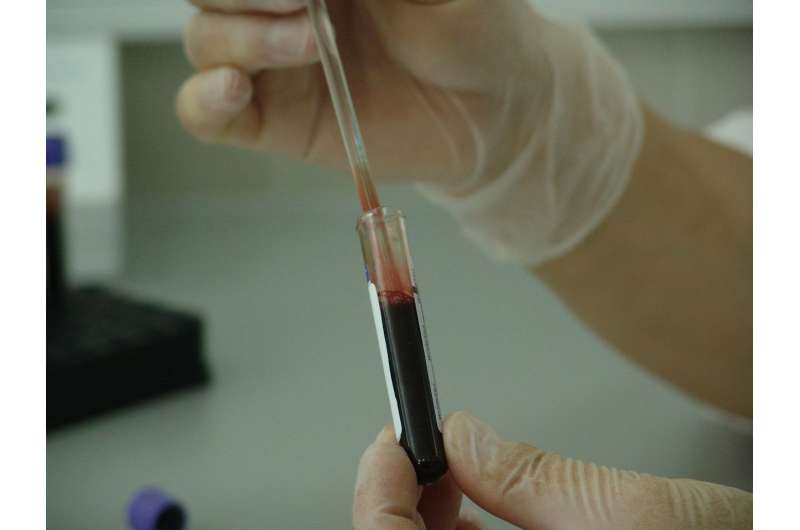
JUNE 14, 2024 by American Society for Microbiology
Collected at: https://phys.org/news/2024-06-ai-enables-faster-effective-antibiotic.html
Sepsis is a life-threatening infection complication and accounts for 1.7 million hospitalizations and 350,000 deaths annually in the U.S. Fast and accurate diagnosis is critical, as mortality risk increases up to 8% every hour without effective treatment. However, the current diagnostic standard is reliant on culture growth, which typically takes two to three days.
Doctors may choose to administer broad-spectrum antibiotics until more information is available for an accurate diagnosis, but these can have limited efficacy and potential toxicity to the patient.
In a study presented at ASM Microbe, a team from Day Zero Diagnostics unveiled a novel approach to antimicrobial susceptibility testing using artificial intelligence (AI).
Their system, Keynome gAST, or genomic Antimicrobial Susceptibility Test, bypasses the need for culture growth by analyzing bacterial whole genomes extracted directly from patient blood samples. The interim findings are based on studies that collected samples from four Boston-area hospitals.
Unlike traditional methods that rely on known resistance genes, the machine learning algorithms autonomously identify drivers of resistance and susceptibility based on data from a continuously growing large-scale database of more than 75,000 bacterial genomes and 800,000 susceptibility test results (48,000 bacterial genomes and 450,000 susceptibility test results at the time of this study). This allows for rapid and accurate predictions of antimicrobial resistance, revolutionizing sepsis diagnosis and treatment.
“The result is a first-of-its-kind demonstration of comprehensive and high-accuracy antimicrobial susceptibility and resistance predictions on direct-from-blood clinical samples,” said Jason Wittenbach, Ph.D., Director of Data Science at Day Zero Diagnostics and lead author on the study.
“This represents a critical demonstration of the feasibility of rapid machine learning-based diagnostics for antimicrobial resistance that could revolutionize treatment, reduce hospital stays and save lives.”
The researchers say that further study is needed, given the limited sample size, but the findings could contribute to significant advancements in patient outcomes amid the rising threat of antimicrobial resistance and the need for rapid diagnosis and treatment of sepsis.
More information: ASM Microbe is the annual meeting of the American Society for Microbiology, held June 13-17, 2024, in Atlanta, Georgia.

Leave a Reply